Browse Primary Sources
Locate primary sources, including images, objects, media, and texts. Annotations by scholars contextualize sources.
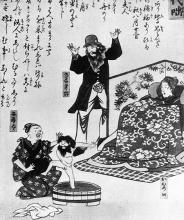
The Exotic White Man Print
The Exotic White Man is a late 19th-century Japanese color print from a private Dutch art collection. The print shows four figures—an older female and miniature-sized male in the foreground; a larger male behind them; and a second, younger female in the background.
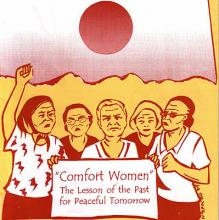
Piglas-Diwa newsletter/booklet
The Piglas-Diwa newsletter/booklet is a creation of the feminist group of Filipino “comfort women" called Lila-Pilipina, who have banded together with feminist goals/messages for peace.
"I Didn't Raise My Boy to Be a Soldier" [Song]
By 1915, Americans began debating the need for military and economic preparations for war. Strong opposition to "preparedness" came from isolationists, socialists, pacifists, many Protestant ministers, German Americans, and Irish Americans (who were hostile to Britain).
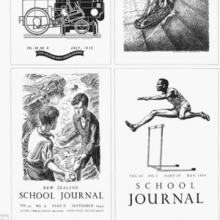
The School Journal, 1907 - [Magazine]
Although early issues of the School Journal drew extensively on a British literary heritage and reinforced imperial values, even in its first year of publication by the New Zealand Department of Education (1907), there were stories, articles and poetry authored locally and written about the colonial heritage and environment.
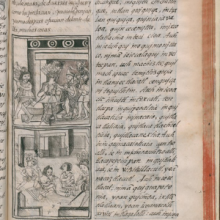
The Florentine Codex
This is an excerpt from the twelfth book of the Historia general de las Cosas de Nueva España (General History of the Things of New Spain), an encyclopedic work about the people and culture of central Mexico compiled by Fray Bernardino Sahagún (1499-1590). Sahagún was a Franciscan missionary who arrived in Mexico in 1529.
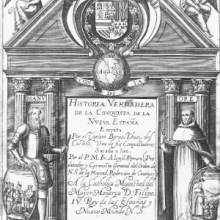
The True History of the Conquest of New Spain
This is an excerpt from the Historia Verdadera de la Conquista de la Nueva España (The True History of the Conquest of New Spain) by Bernal Díaz del Castillo (1492-1581).
Letters of Milada Horáková
In this collection of letters, written by Milada Horáková before her execution in 1950 by the Communist Party in Czechoslovakia, Horáková writes last wishes and notes to her family. Horáková was a Czech politician and prominent feminist in the 20th century who was incredibly politically active, which eventually led to her imprisonment by Nazis during World War II, and her eventual execution.
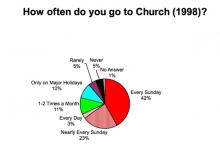
Statistics on Catholicism in Poland after the fall of Communism
These figures show the fragility of Catholicism in Poland after the communist era. Whether questioned about matters of doctrine or lifestyle, large numbers of Poles agreed with the stated positions of the Roman Catholic Church. Discussing these figures will help students understand that the image of “Catholic Poland” is more complicated than a casual observer might assume.
Warsaw Embassy Cable, Bronislaw Geremek Explains Next Steps Toward a Solidarity Government
Following the historic semi-free elections in Poland in June 1989, which resulted in a near total defeat of the Communist regime, Polish Communist and Solidarity leaders engaged in ongoing and significant negotiations in the hope of establishing stability in Poland.
Czechoslovak Secret Police Memorandum, "Information Regarding the Situation in the CSSR"
As a result of the intensifying public demonstrations in the first half of 1989, the Czechoslovak Communist Party increased its surveillance and suppression of independent and opposition groups, particularly in anticipation of politically-charged anniversaries.
Czechoslovak Secret Police Memorandum, "Information on the Security Situation . . "
This Secret Police (StB) memorandum from 21 August details the plans of independent and opposition groups to commemorate the politically-sensitive anniversary of the 1968 Warsaw Pact invasion, and the police's "extraordinary security measures" to prevent the commemorations from taking place.
U.S. Reaction to a New Prime Minister in Poland
In early June 1989, Poland held its first semi-free elections since the inception of Communist Party rule in the post-World War II era. The elections resulted in a solid defeat of Communism and a sound victory for the Solidarity opposition.
Transcript of the SED Politburo Session held on 5 September 1989 East Germany
Hungary began dismantling the barbed wire along its border with Austria in May, 1989. Over the summer months, thousands of East Germans risked their lives crossing over the Hungarian-Austrian border before heading north to West Germany.
Letter from GDR Ambassador to Hungary, Gerd Vehres, to Foreign Minister Osker Fischer
Hungary began dismantling the barbed wire along its border with Austria in May, 1989. Over the summer months, thousands of East Germans risked their lives crossing over the Hungarian-Austrian border before heading north to West Germany.
National Security Directive 23: United States Relations with the Soviet Union
As President George H. W. Bush took office in January 1989, factions within his administration disagreed concerning the approach to take with regard to US-Soviet relations.
National Intelligence Council Memorandum, Status of Soviet Unilateral Withdrawals
In December 1988, Soviet leader Mikhail Gorbachev delivered what he called a “watershed” address at the United Nations, announcing that he planned unilaterally to reduce Soviet military forces by 500,000, cut conventional armaments massively, and withdraw substantial numbers of armaments and troops from Eastern European countries.
Berlin Embassy Cable, The GDR Political Crisis: Still Deepening. October 4, 1989
On the eve of East Germany fortieth anniversary celebrations, it appeared that the SED was losing control. Several pressure points in society were mounting at the same time. In Prague, East German citizens had jumped over the walls into the West German embassy and the East German regime had negotiated their safe passage to West Germany planned for October 4.
Excerpt From the Diary of Anatoly Chernyaev
Anatoly Chernyaev was Mikhail Gorbachev's chief foreign policy advisor during the dramatic events of 1989. In this excerpt from his personal diary, Chernyaev speaks about preparing Gorbachev for his official state visit to East Germany on the occasion of the GDR's 40th anniversary in October 1989.
Berlin Embassy Cable, GDR Political Crisis: Still Deepening. October 6, 1989
The level of unrest in East Germany had been increasing throughout the summer of 1989 and a major focal point of concern for both the East German security forces and international observers concerned the very prominent visit of Mikhail Gorbachev to attend the GDR's 40th anniversary celebrations.
Record of Main Content of Conversation Between Mikhail Gorbachev and Members of the Politburo of the Central Committee of the Socialist United Party of Germany
During Mikhail Gorbachev's historic visit to East Germany on the occasion of the GDR's 40th anniversary, he met with the SED politburo. In his remarks, Gorbachev urged reform and uttered what would become one of the most famous phrases of the period: "Life itself will punish us if we are late."